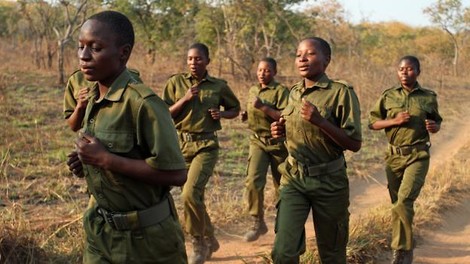Your podcast discovery platform
Curious minds select the most fascinating podcasts from around the world. Discover hand-piqd audio recommendations on your favorite topics.

piqer for: Global finds Health and Sanity Doing Good
Bangalore-based Rashmi Vasudeva's journalism has appeared in many Indian and international publications over the past decade. A features writer with over nine years of experience heading a health and fitness supplement in a mainstream Indian newspaper, her niche areas include health, wellness, fitness, food, nutrition and Indian classical Arts.
Her articles have appeared in various publications including Mint-Wall Street Journal, The Hindu, Deccan Herald (mainstream South Indian newspaper), Smart Life (Health magazine from the Malayala Manorama Group of publications), YourStory (India's media technology platform for entrepreneurs), Avantika (a noir arts and theatre magazine), ZDF (a German public broadcasting company) and others.
In 2006, she was awarded the British Print-Chevening scholarship to pursue a short-term course in new-age journalism at the University of Westminster, U.K. With a double Masters in Globalisation and Media Studies from Aarhus Universitet (Denmark), University of Amsterdam and Swansea University in Wales, U.K., she has also dabbled in academics, travel writing and socio-cultural studies. Mother to a frisky toddler, she hums 'wheels on the bus' while working and keeps a beady eye on the aforementioned toddler's antics.
Meet the ‘Brave Ones’: The Women Saving Africa’s Wildlife
In Shona, the most widely spoken language among the Shona people of Zimbabwe, the word akashinga means 'the brave ones'. An apt name chosen by 17 women for their compact military unit. Most of these women have suffered prolonged abuse, assaults and rape and are now wildlife rangers—Africa's first ever all-women, anti-poaching unit responsible for protecting the Phundundu Wildlife Park, home to nearly 11,000 elephants.
This piece chronicles their inspiring journey from hopelessness to resilience to them regaining their independence, while also knowledgeably debating why conservation is more about community involvement than a mere war on poaching. Alistair Lyne, a filmmaker who is documenting the project, says while these women earlier felt "ashamed", now they are "walking on air".
Chigumbara, who was only 17 when she was raped and later had her child taken away by her rapist's parents, narrates how by managing to stop poachers, she feels a sense of accomplishment. She felt confident enough to fight for the custody of her daughter and indeed won her case in September. Other women have similarly moving stories of transformation.
The recruitment was initiated by Australian Damien Mander who is the founder of the International Anti-Poaching Foundation, an NGO that is one among many tackling Africa's poaching crisis. Mander hopes that the Akashinga model can be expanded and adopted by others to become a community-based conservation movement. His efforts are based on his experience and a growing belief that a violent war against poaching can only work like a 'Band-Aid'. He says: "You cannot sustain an ongoing offensive against the local population as a means of conservation... the long-term solution depends on winning the hearts and minds of the community."
Despite the skepticism and criticism the model has faced from some quarters, the author argues that it has not only brought about a new dimension in conservation, but has also been empowering the women involved.
Stay up to date – with a newsletter from your channel on Doing Good.
